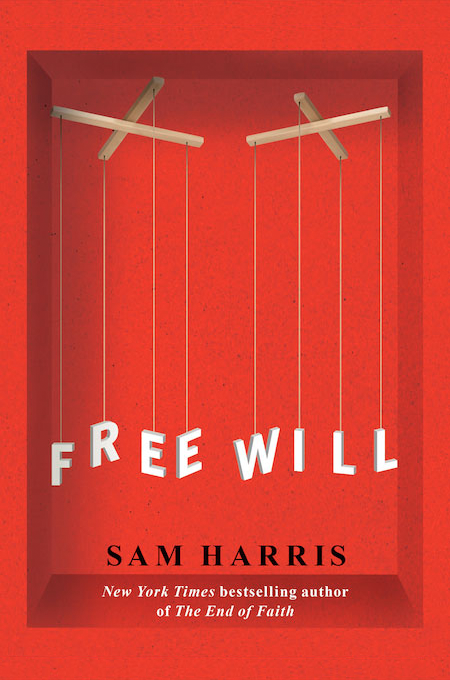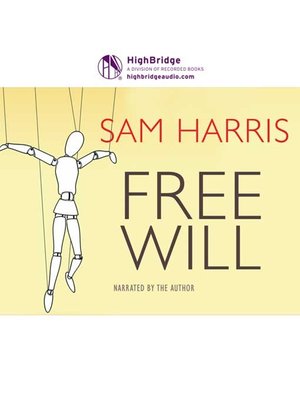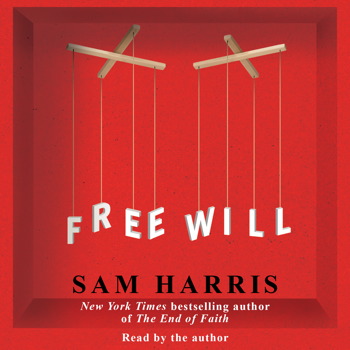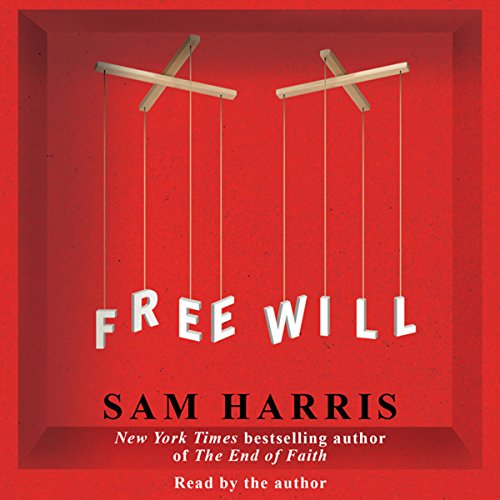Sam Harris’ “Free Will” audiobook challenges the notion that humans have control over their actions. He argues that free will is an illusion.
Sam Harris dives deep into the concept of free will, questioning its very existence. He presents compelling arguments backed by neuroscience and philosophy. Harris contends that our choices stem from a complex web of biological processes and environmental factors. This perspective can profoundly alter how we view personal responsibility and ethics.
The audiobook is thought-provoking and encourages listeners to re-evaluate their understanding of human behavior. It serves as a crucial read for anyone interested in the intersections of science, philosophy, and human nature. Harris’ clear narration makes complex ideas accessible, engaging, and deeply insightful.
Introduction To Sam Harris’ Perspective On Free Will
Explore Sam Harris’ compelling audiobook on free will, where he challenges the traditional notions of human autonomy. His insights offer a thought-provoking perspective on how our decisions may be influenced by factors beyond our control.
The Audiobook In Context
Sam Harris argues that free will is an illusion. He believes our choices are determined by our brain’s chemistry. Our thoughts and actions are not under our control. This audiobook explains his point of view in great detail. Listening can change how you see your own decisions.
Key Themes Explored
- Determinism: Everything happens because of past events.
- Illusion of Choice: We think we choose, but we don’t.
- Neuroscience: Our brains decide before we know it.
- Moral Responsibility: If free will is an illusion, how are we responsible?

The Illusion Of Free Will
Sam Harris argues that free will is an illusion. He believes our choices are not truly free. Our brains make decisions before we are aware of them. This idea challenges many traditional beliefs. People often think they control their actions. But science shows our brains decide first.
Neuroscience studies the brain and how it works. It shows that decisions are made by our brain before we know it. Scientists use machines to watch the brain. They see it decide seconds before we act. This means our choices are not truly free. The brain controls our actions without us knowing.
Determinism And Its Implications
Determinism is the idea that all events are determined by past events. This means everything happens for a reason. It suggests that free will might be an illusion. People might think they make choices. But those choices are influenced by past experiences and biology. This can be a complex idea to grasp.
Believing in determinism can change how we view actions. If everything is determined, it might affect how we judge others. We might be more forgiving. We might understand that people act based on their past. This can lead to more empathy and less anger. Understanding determinism can help us be kinder.
Moral Responsibility Without Free Will
Morality does not need free will. People can still act kindly and fairly. Choices can be influenced by many factors. Understanding this can make us more empathetic. We realize that actions are not always in our control. This can lead to better relationships and understanding.
The justice system can change greatly. Punishment can shift to rehabilitation. This means helping people change instead of just punishing. It can lead to fewer repeat offenses. Judges and lawyers may focus more on background and circumstances. This could make the system fairer.
Critiques And Counterarguments
Some thinkers say free will is real. They argue people make choices every day. These choices shape their lives. They believe responsibility comes from free will. If free will is an illusion, then who is to blame? This question troubles many philosophers. They also worry about moral accountability.
Scientists study the brain to understand free will. Some studies show that decisions happen before we know it. Brain activity comes first, then we become aware. This suggests free will might be an illusion. Others argue that brain data is not enough. They say consciousness plays a key role. This debate is ongoing and very complex.
Reconciling The Illusion Of Choice
Sam Harris argues that free will is an illusion. Our choices are shaped by factors beyond our control. These factors include our genes and environment. Accepting this can reduce feelings of guilt and shame. It can help us understand human behavior better. We can learn to be more compassionate towards others. Realizing we do not have free will can be liberating.
Constraints do not always limit us. They can offer structure and clarity. Knowing our choices are determined can free us from blame. We can focus on improving our environment. This can lead to better outcomes for everyone. Understanding determinism can help us make better decisions. It can also enhance our relationships. We can find peace and freedom within these constraints.
Practical Applications Of Harris’ Theory
Harris’ theory helps us understand our choices. This can lead to better self-awareness. Knowing that free will is an illusion can reduce self-blame. People can be kinder to themselves. It promotes mindfulness and better decision-making. Stress levels can decrease as a result. Accepting this view helps with emotional resilience.
Policymakers can use Harris’ ideas to shape fairer laws. Understanding that actions are determined can lead to compassionate policies. This can result in rehabilitation over punishment. Justice systems can focus on reform. This helps to reduce recidivism rates. Policies can be more inclusive and empathetic. Society benefits from reduced conflict and better social harmony.

Reflections And Takeaways
Sam Harris’ “Free Will” audiobook challenges the concept of free will, offering thought-provoking insights. Key takeaways include the illusion of choice and its implications on personal responsibility.
The Future Of Free Will Debates
Free will is a controversial topic. Sam Harris argues it is an illusion. Many people believe they have complete control. This audiobook challenges that belief. Harris presents scientific evidence. He explains how brain activity influences decisions. This raises questions about moral responsibility. How can we hold people accountable? The debate will continue. New research may provide more answers. Society may change its views. This topic is important for everyone.
Personal Reflections On The Audiobook
This audiobook made me think deeply. I questioned my own choices. Are they really mine? The scientific evidence was compelling. It made me reconsider free will. Harris’s arguments are strong. They are hard to ignore. I found myself agreeing with him. But it was also unsettling. The idea of not having free will is scary. It changes how we see the world. I will continue to explore this topic.

Conclusion
Sam Harris’s “Free Will” audiobook challenges our understanding of free will and decision-making. It’s thought-provoking and insightful. This audiobook is a must-listen for anyone curious about human behavior. Dive into Harris’s arguments and gain a new perspective. Discover how our choices may not be as free as we think.



